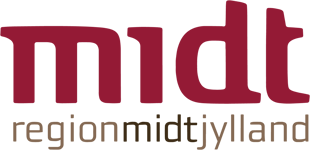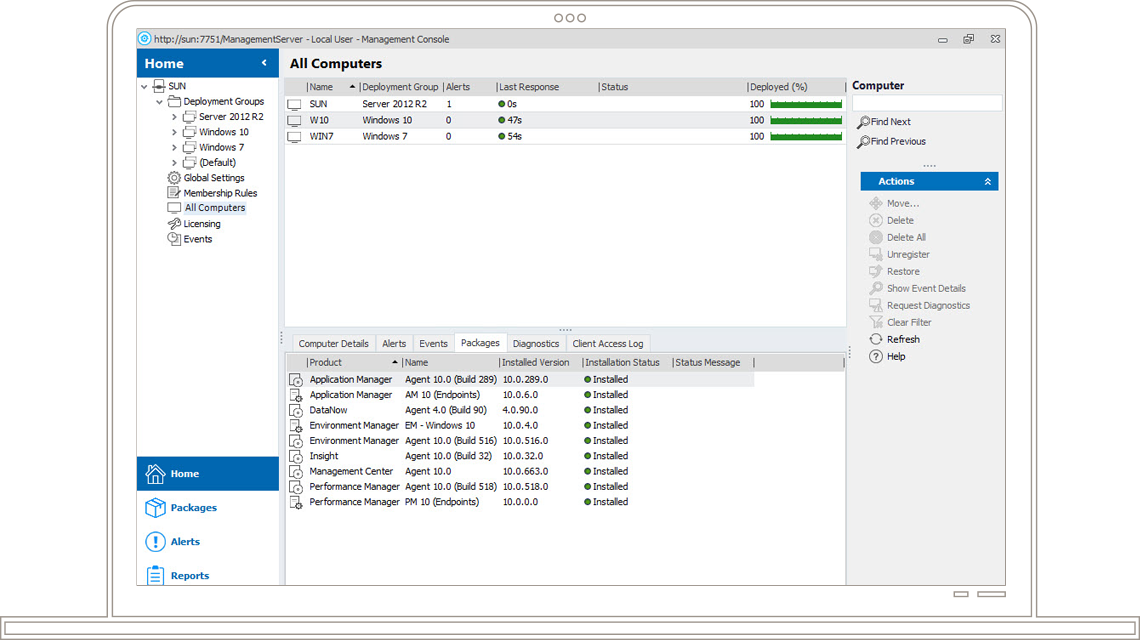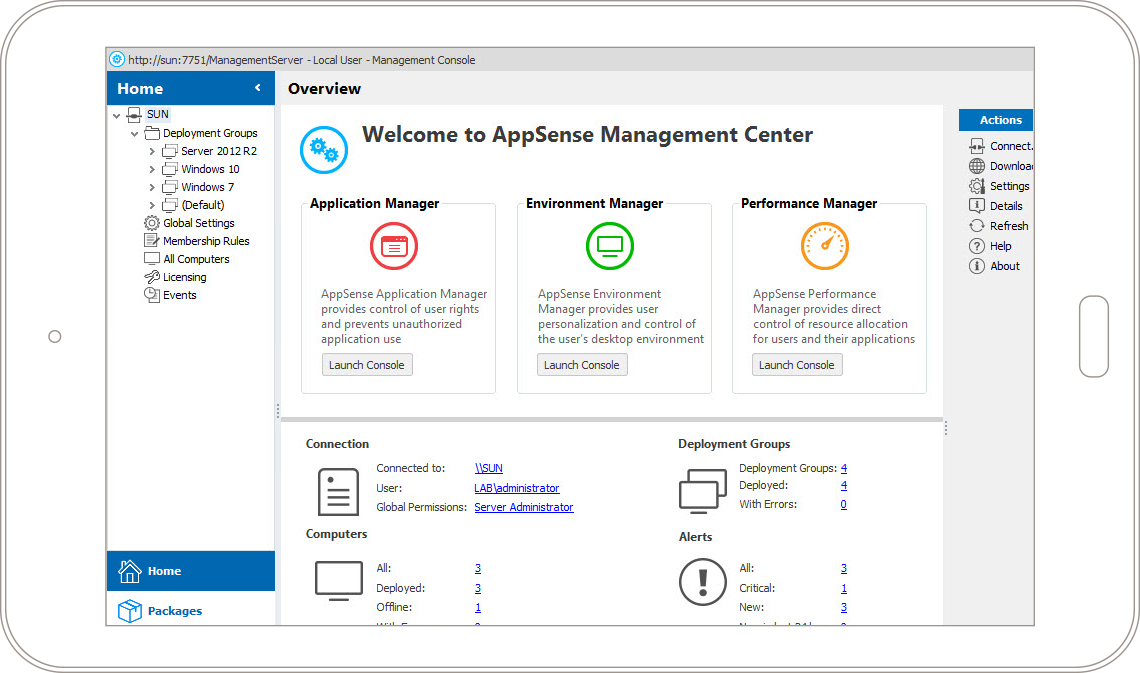Region Midtjylland is Denmark’s second largest government administrative area, with a population of 1.3 million. Administrative responsibilities include hospitals and more than 31,000 healthcare staff. In Aarhus, the country’s second largest city, a regional centre of clinical excellence is being developed, merging the services of three hospitals.

Products
Easing migration, increasing productivity, and improving healthcare regulatory compliance
To support the operational effectiveness of its healthcare services, Region Midtjylland began an Information Communication Technology (ICT) modernization project five years ago, adopting server virtualization and desktop thin terminal clients across six hospitals, all then with their own ICT departments.
With so many staff, it was important that users have a uniform, secure, up-to-date experience that met regulatory compliance obligations, and it needed to be scalable across all of the region’s healthcare facilities.
Benefits to Region Midtjylland

Upgrading desktops from Windows XP to Windows 7
Prior to the installation of DesktopNow, an OS upgrade would have involved a major manual ICT effort, with colleagues in some scenarios configuring applications themselves or through a deployment package. Using DesktopNow, Region Midtjylland deployed the changes once centrally, and then provisioned end-user personalization, user files, customizations, and their settings automatically.
Rollout of new IT platform
The Region rolled out a new, common IT platform, FIP, in 2014. A key element of the rollout was using DesktopNow to centralise and unify the clients or laptops. The Region had access to over 3,000 mainly healthcare apps—from Electronic Patient Journals to standard Office apps. The FIP project reduced this number by approximately half.
Building policy-driven access
Using DesktopNow, ICT was able to implement and build four different tiers of policy-driven access and admin rights for controlled application usage. Most users received a totally preconfigured, but locked down, task station with pre-approved apps common to all users. A smaller percentage of users received pre-determined access to specific apps that helped fulfil certain healthcare tasks particular to their function e.g. patient monitoring. Only five percent of staff, usually within ICT, received full local ‘trusted ownership’ admin rights that allowed installation of any applications.
Reducing the risk of data loss
Through adoption of policy-driven access, the Region gained compliance and the assurance of security and patient confidentiality using DesktopNow alongside other solutions to adhere to stringent EU regulations related to the sharing, collection, and preservation of patient data. Not only is the risk of data loss significantly reduced, the Region has a compliancy audit trail for elevated access through the management server should the need arise.

Ring-fenced secure logon
Secure logon has been ring-fenced through the use of Personal Identifiable Information—distinct to each staff member. Previous scenarios involved having to locate staff to fully log off after 20 minutes of inactivity before another staff member could use the Citrix client.
Flexible policies to achieve secure endpoints
Says Anette Kaasing, Ivanti Expert & Desktop Specialist, “DesktopNow has been instrumental in achieving the desired security, consolidation, and familiarity of desktops across this large installation. In our experience across five years, the solution is easy to use, and its flexible policies help achieve secure endpoints.”